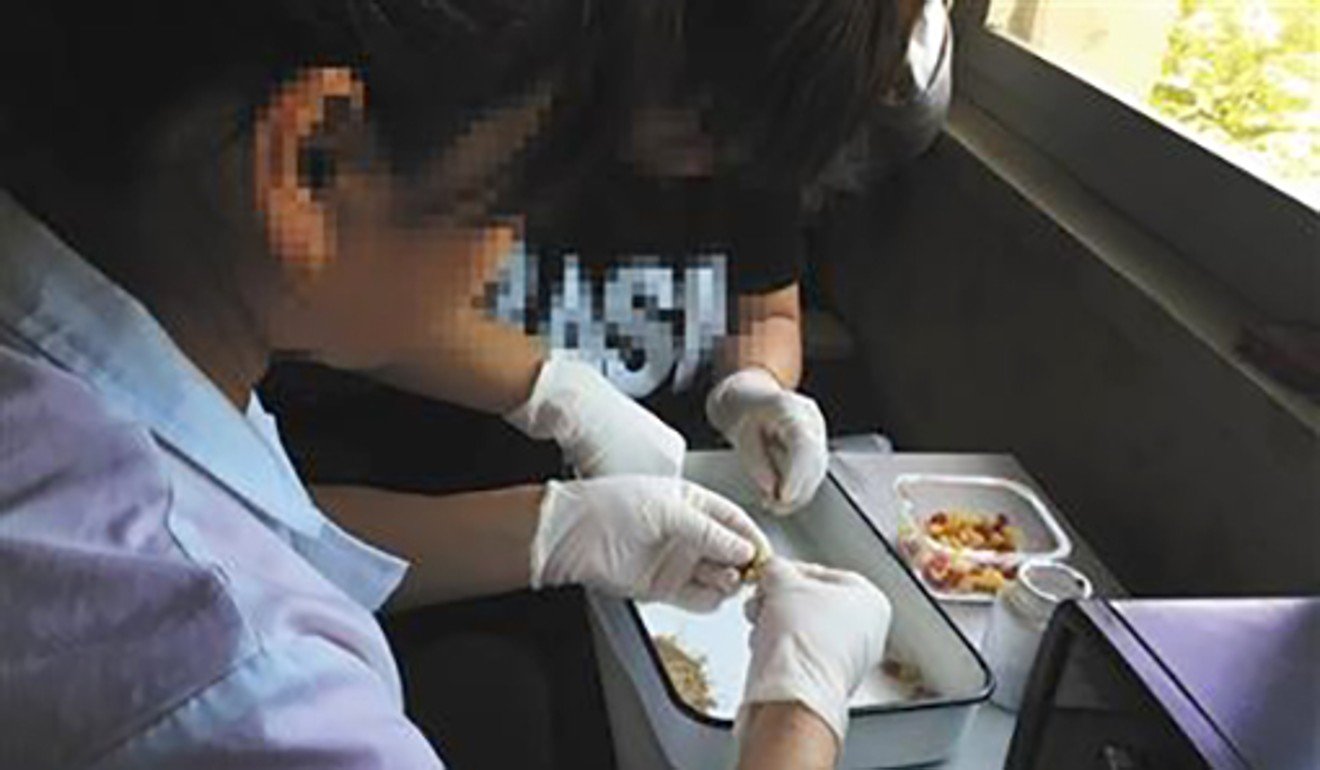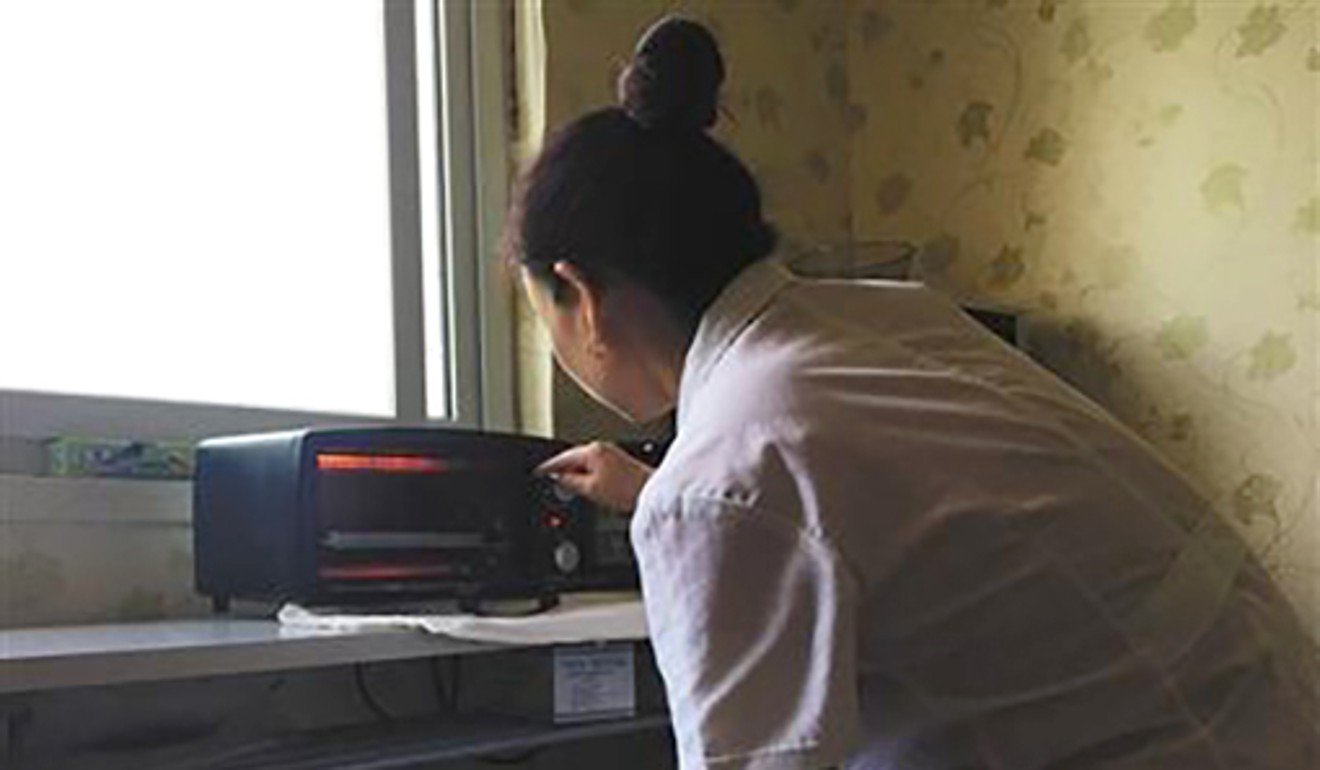Police Raids Noodle Soup Restaurant in China for Serving “Libido Boosters”

Dead fetuses lined up like fish in the market.
Dead fetuses lined up like fish in the market.
A new photo featuring dead fetuses being sold in China has circulated in the social media once again.
The person who uploaded the photo said the fetuses were lined up and being sold like fish.
You can notice three people in the background who are probably the vendors of the fetuses.
Netizens have expressed their disgust over the photo and shared some very strong words of aversion towards this practice.
Netizens have expressed their disgust over the photo and shared some very strong words of aversion towards this practice.
As this new photo appears to be totally different from the ones posted a few years back, it is shocking to know that this still continues to happen.
The public speculates that these fetuses were aborted so that their mothers can escape the sanctions of China’s one-child policy.
The public speculates that these fetuses were aborted so that their mothers can escape the sanctions of China’s one-child policy.
The said policy dictates that families should only have one child, unless if the first born is a girl.
According to the US State Department, Parliament of the United Kingdom, and the human rights organization Amnesty International, China’s family planning schemes may contribute to infanticide, or infant homicide, which pertains to the “intentional killing of children under the age of 12 months.”
Some netizens even commented that a handful of restaurants offer “soup number 5,” which is said to be composed of whole fetuses.
Some netizens even commented that a handful of restaurants offer “soup number 5,” which is said to be composed of whole fetuses.
This soup is also believed to taste delicious and enhance sexual desire.
Human placentas selling for RMB20 in Guangzhou
“HEALTH authorities are investigating an illegal trade in human placentas that was said to be thriving in a hospital in south China’s Guangdong Province. Authorities with the Health Bureau of Baiyun District in Guangzhou City said the Red Cross Hospital of Baiyun District will face punishment and fines if tip-offs they received were verified, yesterday’s New Express Daily reported. A whistleblower identified as ‘A Hui’ said human placentas – thought to be a rich source of nutrients by many Chinese people – were being sold at 20 yuan (US$ 3.08) each by nurses at the hospital’s department of obstetrics and gynecology. According to the whistleblower, the nurses kept fresh placentas they obtained from women who had given birth in a fridge in an office. He said his wife, who gave birth at the hospital last year, had her placenta taken away without receiving any notification. He then began to pay attention to the hidden business, which was banned by China’s Health Ministry in 2005. A New Express Daily reporter went undercover to purchase a placenta. After receiving 20 yuan, a chief nurse took out one in a plastic bag and told the reporter that it should be stewed with lean meat and Chinese dates for about an hour. Human placentas are banned from trade due to deaths. They supply oxygen and nutrients to the fetus during pregnancy and allow fetal waste to be disposed of via the mother’s kidneys. The placenta is infected during labor with fecal matter or carry viruses such as hepatitis B from the mother, according to doctors.” [Shanghai Daily]
A peek into China’s thriving black market for human placentas
Illegal supply coming from Beijing hospitals and traders can earn 100,000 yuan a month, newspaper finds
PUBLISHED : Monday, 22 May, 2017
China has not been able to curb a thriving black market for human placentas – believed to provide nutrients and health benefits for new mothers – which are often illegally sourced from hospitals, a newspaper investigation has found.
The trade in human placentas is banned in China, but the black market is alive and well, with sellers saying they can easily earn 100,000 yuan (US$14,500) a month, according to The Beijing News.
The paper’s investigation found an established network of placenta traders in the capital city, with hospitals selling fresh placentas and buyers misleading new mothers for theirs.
Li Ping, a 40-year-old seller in the market, claims she can buy a fresh placenta from a hospital for 400 yuan, and sell it directly at a 100-yuan markup. But for placenta that she and her team processes and repackage into capsules, they can be sold for 800 yuan, or 10 yuan per capsule.

Many of her customers believe that eating capsules of placenta, which helps fetuses receive nutrients in the womb, has beauty benefits, can enrich their blood, or even be used to treat burns or infertility. This practice is popular around the world, and endorsed by celebrities including Kim Kardashian and January Jones.
The processing of placentas includes washing, boiling, cutting it up, and baking it in an oven. It is then crushed into powder and then placed into individual capsules.
Li says she can sell two to three placentas per day. The one she showed The Beijing News yielded 112 individual capsules.

No comments:
Post a Comment
Comments always welcome!